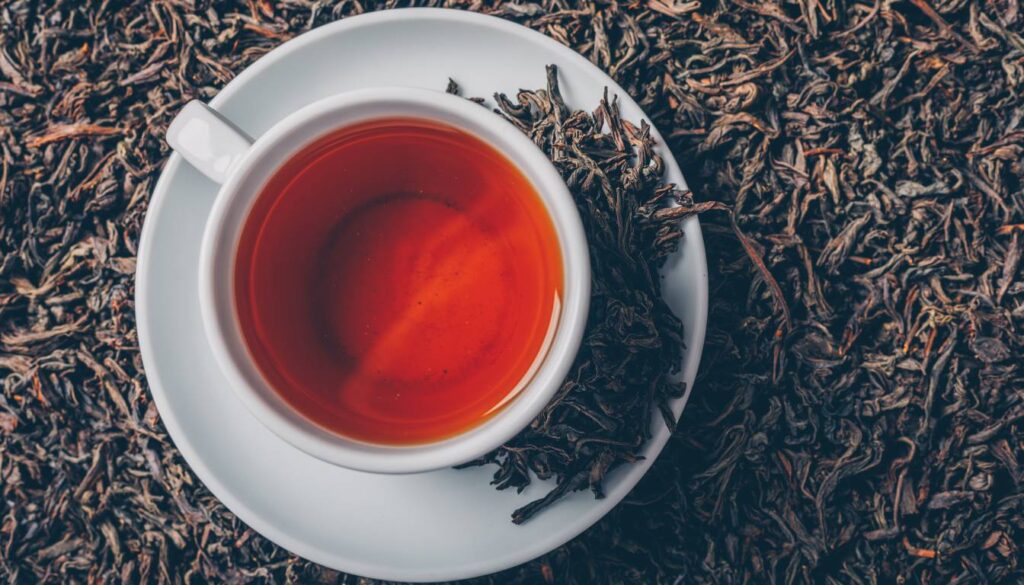Sleepless nights can feel endless, leaving you drained and irritable. If you’ve ever tossed and turned, you know how frustrating it is to crave rest but find yourself wide awake. Insomnia isn’t just a nuisance; it can impact your daily life, making stress feel even heavier. But what if I told you there’s a natural remedy that might help?
Valerian root has been used for centuries as a calming herb. Its soothing properties could be the key to unlocking the restful sleep you’ve been missing. By easing anxiety and promoting relaxation, valerian might just be the answer to your sleepless struggles. Let’s dive into how this powerful plant can help you reclaim your nights and restore your peace of mind.
Understanding Sleeplessness
Sleeplessness disrupts lives and increases stress. Many factors contribute to this common issue.
Common Causes of Sleeplessness
Anxiety often steals sleep. Worries about work, relationships, or health create racing thoughts. Stressors pile up, leading to late-night tossing and turning. Lifestyle choices can also play a role. Late caffeine consumption, irregular sleep patterns, and excessive screen time can keep me wide awake. Medical conditions, like sleep apnea or chronic pain, further complicate matters. Even medications can interfere with my ability to fall asleep.
Effects of Sleeplessness on Health
Sleeplessness can lead to fatigue and irritability. It saps energy and can create a foggy brain. My ability to focus and make decisions diminishes, causing mistakes. Long-term sleep deprivation raises the risk of more serious health issues. It can contribute to heart disease, obesity, and diabetes. Mood disorders, such as anxiety and depression, also thrive on lack of sleep. A good night’s rest is essential for thriving, not just surviving.
By understanding these causes and effects, I can take steps to improve my sleep quality.
The Role of Valerian in Sleep

Valerian root serves as a natural ally in the quest for better sleep. This ancient herb has gained attention for its calming properties.
What Is Valerian Root?
Valerian root comes from the Valeriana officinalis plant. It grows in Europe and parts of Asia. People have used it for centuries to promote relaxation. The root’s extract features compounds that may support better sleep.
How Valerian Works for Insomnia
Valerian works by influencing neurotransmitters in the brain. It boosts gamma-aminobutyric acid levels or GABA. This amino acid acts as a natural calming agent. Many find that increased GABA levels help reduce anxiety and tension. Studies show valerian can improve sleep quality. Others report falling asleep faster.
I find that incorporating Valerian into my nightly routine works wonders. Taking it in tea or capsule form promotes a sense of peace. A regular dose may help create a wind-down ritual that signals it’s time for sleep.
Valerian Root – Get Yours Here.
I bought some organic valerian root in the cut form from a company I trust. I would make a strong tea just before bed and drink one-half of the cup. Then, if I woke up later in the night I would finish the cup. It worked like a charm, I slept deeply every night and it helped me calm down so I could get through this stressful time. When I moved on, I stopped taking the valerian with no side effects whatsoever. I recommend Frontier Organic. This option is Certified Organic!
Benefits of Valerian for Stress Relief
Valerian root provides multiple benefits for managing stress. Its calming properties make it a popular choice for those seeking relief from anxiety.
Mechanisms of Valerian in Reducing Stress
Valerian influences brain chemistry. It increases levels of gamma-aminobutyric acid, or GABA, which calms nervous activity. Lower GABA levels often lead to heightened anxiety. By boosting GABA, valerian effectively reduces tension and promotes relaxation.
Studies show that valerian can shorten the time it takes to fall asleep, which directly impacts stress levels. When I use it regularly, I notice improvements in my mood throughout the day. Sleep and stress are related; better sleep reduces stress significantly.
Valerian Compared to Other Remedies
Valerian stands out against other remedies for stress relief. Unlike many over-the-counter options, valerian is natural and non-habit-forming. It works gently and promotes long-term well-being.
Other remedies, such as prescription medications or synthetic supplements, can have side effects. I prefer valerian because it doesn’t leave me with a groggy feeling in the morning. It’s a safe alternative, providing the comfort I need without the drawbacks.
Valerian root effectively reduces stress. Its influence on GABA helps calm the mind and enhance sleep quality. For anyone grappling with stress, consider integrating valerian into your routine.
Research on Valerian Effectiveness
Valerian root shows promise as a remedy for sleeplessness. Numerous studies support its effectiveness in improving sleep quality and reducing anxiety.
Recent Studies on Valerian and Sleep
Recent research highlights valerian’s ability to enhance sleep. In one study, participants who took valerian reported falling asleep faster and enjoying deeper sleep compared to those using a placebo. A review of multiple trials found that valerian significantly improves sleep quality for individuals with insomnia. Participants often note a noticeable decrease in the time it takes to fall asleep, sometimes by as much as 30 minutes. Additionally, reports suggest that the calming effects linger through the night, leading to less disruptive sleep overall.
Limitations of Current Research
Despite the promising findings, some limitations exist. Many studies on valerian have small sample sizes, affecting the reliability of results. Some trials lack standardized dosages, making it tough to compare outcomes. Additionally, individual responses to valerian vary; what helps one person may not help another. More extensive research is crucial to understand the optimal dosage and to solidify valerian’s role in managing insomnia. Overall, while valerian shines in some studies, more data would be welcome to support its use confidently.
Before You Go – Valerian

Embracing valerian roots in my nightly routine has truly transformed my approach to sleeplessness and stress. Its calming properties not only promote relaxation but also signal my body that it’s time to unwind. I’ve found that by integrating this natural remedy, I can reclaim those peaceful nights I once took for granted.
The journey to better sleep doesn’t have to rely solely on medications with unwanted side effects. Valerian offers a gentle alternative that aligns with my desire for a healthier lifestyle. As I continue to explore its benefits, I’m optimistic about the positive impact it can have on both my sleep quality and overall well-being. If you’re struggling with insomnia and stress, it might just be worth giving valerian a try. Don’t forget to add The Herb Prof to your favourites so you don’t miss out on future articles.
References – Valerian
Little Herb Encyclopedia, by Jack Ritchason; N.D., Woodland Publishing Incorporated, 1995
The Ultimate Healing System, Course Manual, Copyright 1985, Don Lepore
Planetary Herbology, Michael Tierra, C.A., N.D., Lotus Press, 1988
Handbook of Medicinal Herbs, by James A. Duke, Pub. CRP Second Edition 2007
The Complete Medicinal Herbal, by Penelope Ody, Published by Dorling Kindersley
Check the Following Articles
Milk Thistle Benefits: A Natural Detoxifier and Liver Protector
Biblical Myrrh: The Ancient Resin with Modern Benefits
Neem Tree Benefits: Amazing Health From This Secret!
Frequently Asked Questions – Valerian
1. What is valerian root, and how does it help with sleep?
Valerian root is an herbal remedy derived from the Valeriana officinalis plant. It is known for its calming properties, helping to influence neurotransmitters in the brain, particularly by increasing GABA levels. This action can reduce anxiety and tension, making it easier for individuals to fall asleep and improve overall sleep quality.
2. What are the common causes of insomnia?
Common causes of insomnia include anxiety, stress, poor lifestyle choices, medical conditions, and certain medications. Recognizing these factors can help individuals take proactive steps to improve their sleep and well-being.
3. Is valerian root safe to use for sleep issues?
Valerian root is generally considered safe for short-term use and is a non-habit-forming option. However, individuals should consult a healthcare professional before starting any new supplement, especially if they have existing health conditions or are taking other medications.
4. How does valerian root compare to prescription sleep aids?
Unlike prescription sleep aids, valerian root is a natural remedy that typically has fewer side effects and does not lead to dependency. It promotes relaxation and sleep without the risks often associated with synthetic medications.
5. Are there any side effects of valerian root?
Valerian root is generally well-tolerated, but some individuals may experience mild side effects, such as headaches, dizziness, or gastrointestinal upset. It’s important to start with a lower dose and consult a healthcare provider if you have concerns.
6. How long does it take for valerian root to work?
Many users report feeling the calming effects of valerian root within 30 minutes to a couple of hours after taking it. However, individual responses can vary, and regular use may enhance its effectiveness over time.
7. Can valerian root be used daily?
Yes, many people choose to use valerian root daily as part of their nighttime routine to help promote relaxation and improve sleep quality. However, it’s advisable to monitor how your body responds and adjust as needed.
8. What do studies say about valerian root’s effectiveness?
Research indicates that valerian root can improve sleep quality and help individuals fall asleep faster. Some studies show a decrease of up to 30 minutes in the time it takes to fall asleep, although more extensive research is needed to strengthen these findings.

